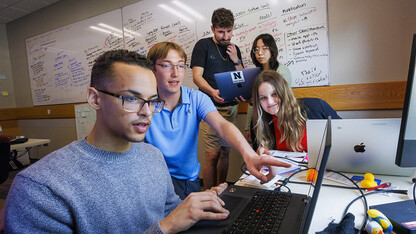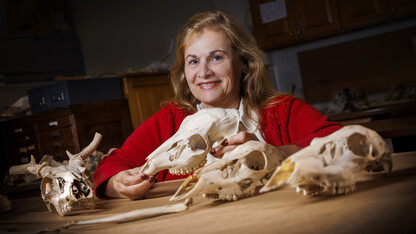· 2 min read
Alphabet soup: Could last names be swaying research careers?

Welcome to Pocket Science: a glimpse at recent research from Husker scientists and engineers. For those who want to quickly learn the “What,” “So what” and “Now what” of Husker research.
What?
In academic papers, researchers cite prior studies that have informed their own — sometimes simultaneously referencing several studies that support the same point. Many journals require that these in-text citations include authors’ last names. Some list the citations chronologically, with others alphabetizing them by lead author.
Nebraska’s Jeffrey Stevens and doctoral student Juan Duque found that in the alphabetically inclined field of psychology, authors whose last names begin with letters early in the alphabet generally get cited more than those later in the alphabet. The team found no such relationship in biology and geoscience journals, which feature chronological ordering.
Stevens and Duque propose that these findings reflect the primacy effect: a tendency for first-encountered information to receive more attention than later information.
So what?
Because they’ve come to signify productivity and success, citation rates are evaluated when deciding on tenure and grant funding. If the primacy effect is at play, careers could be benefitting or suffering on the basis of last names.
Now what?
The authors recommend that journals move away from alphabetical to chronological citations. Though not resolving the primacy issue, the change would favor earlier studies that do tend to feature more fundamental, influential findings.










